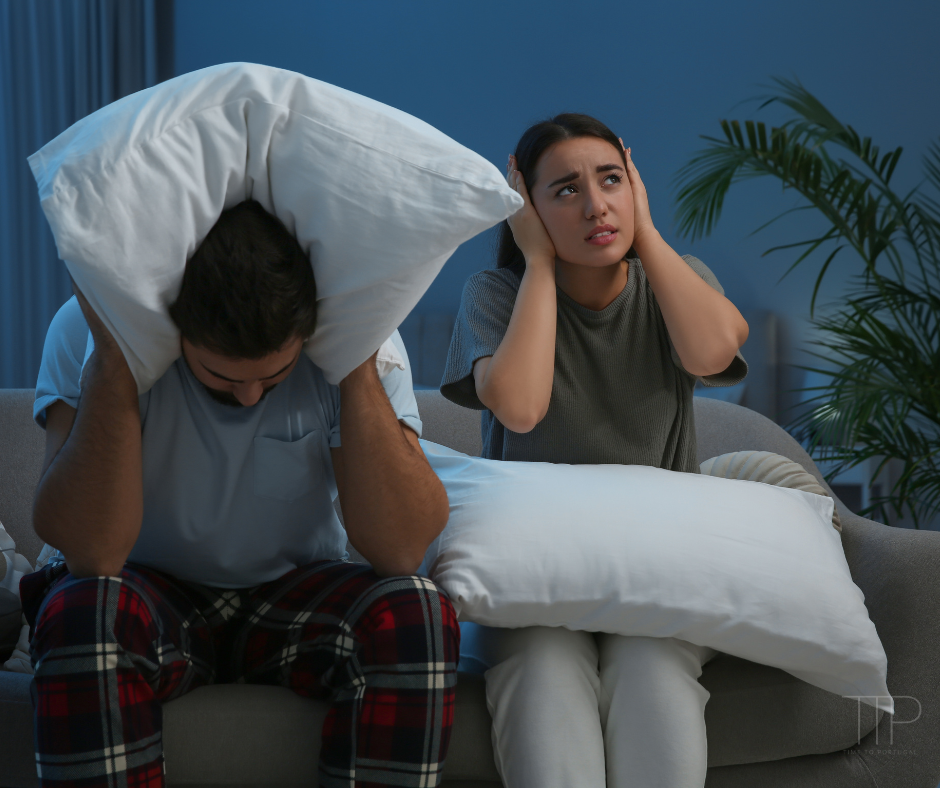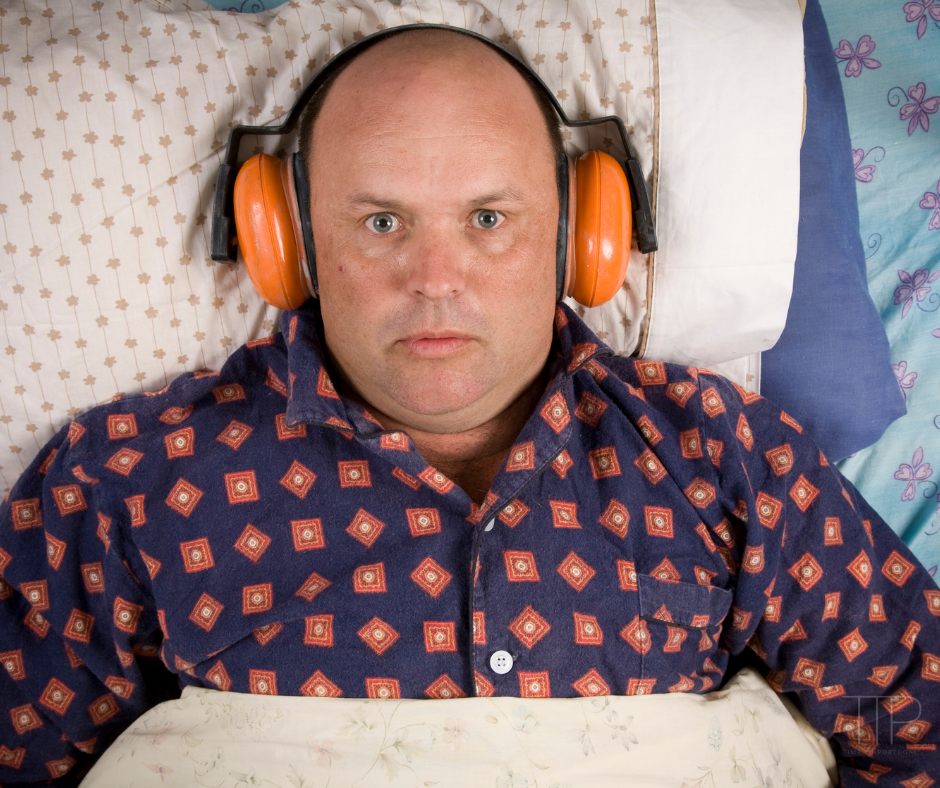Find out more about the law governing noise hours in Portugal.
Living as a community in a building or condominium inhabited by several tenants is not always easy. The proximity between apartments, coupled with the poor quality of sound insulation found in most buildings in Portugal, often contributes to disagreements between neighbors. Especially when noise is made after hours.
Even in more recently built buildings or in semi-detached houses, where there is actually better insulation, there can be situations of disagreement between neighbors caused by noise. If your neighbors make noise after hours, this article is for you.
These kinds of conflicts can and should be resolved through dialog. Especially if there is understanding between neighbors. However, since it’s not always possible to manage this issue with peace of mind, it’s important to know that you are protected by the Noise Law, which determines the times when noise is allowed: loud music, parties, work at the weekend, operating machinery, etc.
General Noise Regulation
The official name for the Noise Law is the General Noise Regulation (Regulamento Geral do Ruído). This law was implemented with the aim of monitoring any type of noise pollution that could be harmful to the health and well-being of people who are exposed to it. It is thus a regulation that decrees rules for action on various activities considered noisy, whether permanent or temporary, such as events, shows, vehicles and industry, construction work, transport and, of course, neighborhood noise.
According to Article 3 of Decree-Law no. 9/007, “noise associated with residential use and the activities inherent to it, produced directly by someone or through someone else, by something in their care or an animal placed under their responsibility, which, due to its duration, repetition or intensity, is likely to affect public health or the tranquillity of the neighborhood”.

Noise Law: what does it say?
Contrary to popular belief, this law does not establish an effective ban on the time when noise is supposed to stop. It does set times during which police action is planned if there is a complaint about noise. Article 24 of the decree states that:
Police forces may order the producer of the noise, if it is occurring between 11 p.m. and 7 a.m., to adopt appropriate measures for the immediate cessation of the nuisance;
Police forces can set the noise producer a deadline for the noise to cease if it is occurring between 7am and 11pm. So, if your neighbors are making noise between 11pm and 7am, you can call the authorities and ask them to take action to stop the source of the noise. Between 7am and 11pm, you can also ask the authorities to intervene. However, this action will only serve to alert the noise producer who must stop the noise at the scheduled time.
The law applies specifically to the following sources of noise:
-Construction, reconstruction, extension, alteration and/or conservation works on buildings;
-Civil construction work;
-Operation of machinery and/or industrial, commercial and service establishments;
Outdoor equipment;
-Transport infrastructures, vehicles and traffic;
-Shows, sporting events, markets, fairs and amusements;
-Sound alarm systems;
-Neighborhood noise. However, the provisions of the Noise Law do not apply to sound signals that have to do with safety on road transport infrastructure, such as level crossings.
What are the exceptions?
It’s important to mention that if any of the activities listed above are of a temporary nature, they may be authorized by the competent municipality through the issuance of a special noise permit. The same can happen in “exceptional and duly justified cases” provided for by law.
Schools, the vicinity of hospitals or similar establishments are protected from these exceptions, so no noisy activities are allowed near them.
Noisy activities near residential buildings are also prohibited at weekends, on public holidays and on working days between 8pm and 8am.
What if there is work inside a building?
This type of work can only take place on working days, between 8 a.m. and 8 p.m., as is established for outdoor work. In this specific case, the person responsible for the work does not need a special noise permit. All they have to do is post, in a place that is easily accessible to residents, an indication of the expected duration of the work and, if possible, the time at which it will take place or the times when the noise may become more intense.
However, if the police find that these works are going on outside the hours mentioned, in breach of the noise law, they can intervene and even suspend them by registering an incident report. This is then sent to the local authority so that an administrative offense can be filed.
Excluded from this law are works classified as being of an urgent nature, the aim of which is to avoid immediate danger to people and/or property.
Living in a community is a challenge that requires not only patience, but also the respect that must exist between our space and the space of our neighbors, since the rights and duties established are universal and must be respected by all.
If you’re experiencing a situation that makes you uncomfortable, try talking to your neighbors or your condominium management. If you can’t reach an agreement, act in accordance with your rights under the law. However, it is not uncommon for people to find that the problem persists after formalizing a complaint. If this is your situation, you should know that it is also possible to take official action with the competent authorities and contact them whenever there is a noise situation, and the person responsible for it is subject to a fine of between €200 and €2,000.

